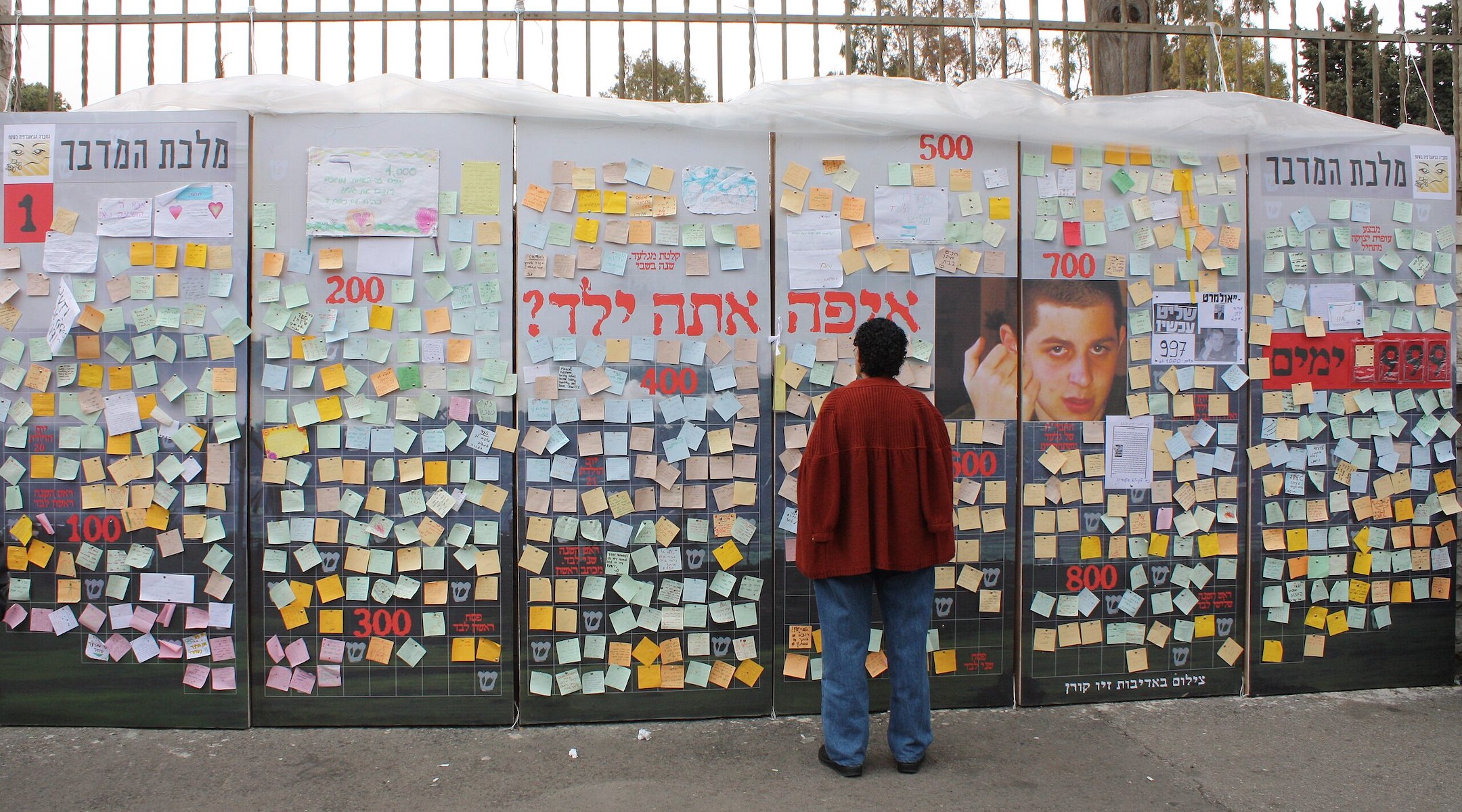Cpl. Gilad Shalit, a baby-faced soldier with large, round glasses, smiles from the front pages of Israeli newspapers under banner headlines calling for his return home.
The 19-year-old was captured and taken hostage Sunday in Gaza after being lightly wounded during a Palestinian cross-border raid. Two other soldiers in his tank unit were killed in the battle.
Hamas and two smaller groups claimed responsibility for the attack and now reportedly are calling for the release of Palestinian women and youths from Israeli prisons in exchange for information on the soldier.
The specter of soldiers being kidnapped is one of the greatest fears in Israeli society, reminding the country of its own vulnerability. For years, terrorist groups have sought to abduct soldiers, believing they can be used as bargaining chips.
Shalit, described as a kind and shy teenager by his family, has joined the ranks of Israeli soldiers captured in battle in recent years. Other cases include:
* October 2000 – Benny Avraham, Adi Avitan and Omar Souad, three soldiers patrolling the Lebanese border by jeep, are ambushed, killed and dragged across the border by Hezbollah guerillas. Three years of negotiations mediated by Germany lead to an agreement to return their remains to Israel, along with kidnapped Israeli businessman Elhanan Tannenbaum in exchange for the release of hundreds of Arab prisoners.
* October 1994 – Cpl. Nachshon Wachsman, 19, is captured by a Hamas cell in the West Bank which asks for the release of Palestinian prisoners. A botched commando raid leaves Wachsman, a commanding officer, and several hostage-takers dead.
* October 1986 – C-pt. Ron Arad, an Israeli air force navigator, parachutes out of his damaged warplane over Lebanon and is taken hostage. Israel says Arad is captured by Lebanese militiamen connected to Iran, but no concrete information is available on his whereabouts or his condition and years later he remains unaccounted for, amid speculation that he is dead.
Raphael Israeli, a Hebrew University history professor who specializes in Islamic history and its fundamentalist movements, said kidnappings strike deeply at the Israeli psyche.
A soldier killed in battle is not an unexpected event, he said, “but when one is captured and helpless it immediately brings up the image of the Holocaust, where Jews did not have the opportunity to fight or resist,” he said.
Furthermore, the drama of a kidnapping creates a wide audience, especially, he said, in a small country where “we are very few and therefore everyone counts. When something like this happens, everyone is worried.”
The Shalit family has been sequestered in its village in the western Galilee since the news of their son’s capture. Gilad’s father made his first comments to the media on Monday to Israel’s Army Radio, choking back tears as he pleaded for his son’s life.
“It is important for me that he is treated well medically and that they treat him fairly, that they remember he is a human being,” Noam Shalit said in the interview. “We believe that whoever holds him has a family and knows what we are feeling.”
The Archive of the Jewish Telegraphic Agency includes articles published from 1923 to 2008. Archive stories reflect the journalistic standards and practices of the time they were published.




